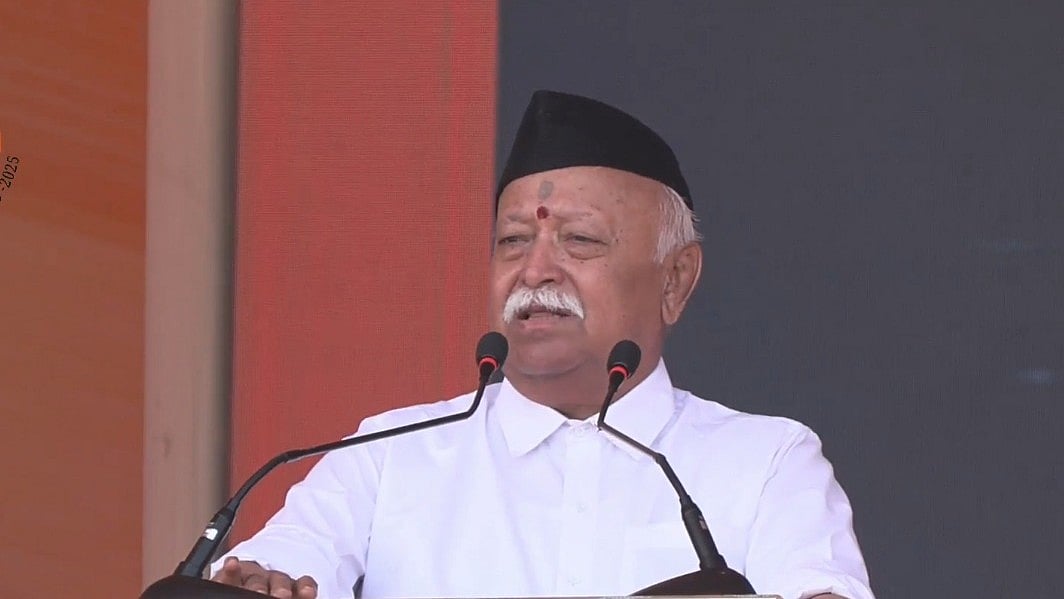A 29-year-old woman from Ghaziabad, UP, who taught at a Delhi school, recently committed suicide following dowry harassment by her husband and in-laws. In her suicide note, she said that her husband, a doctor by profession, “married my job, not me”. She also didn’t want her four-year-old son to become like his father. A young life lost to suicide.
The young woman teacher’s suicide will end up being just another statistic in the long list of dowry-related deaths in our country. Even after being outlawed for 64 years (since 1961), the insidious grip of dowry harassment continues to haunt our society.
The school teacher could have sought a divorce and, with her independent spirit, built a life for herself and her son. Perhaps the societal pressure on women to endure even crumbling marriages, despite no fault of their own, solely for the sake of their children weighs too heavily, leaving them feeling trapped.
Mahatma Gandhi once said, “Any young man who makes dowry a condition to marriage discredits his education and his country and dishonours womanhood.” According to the National Crime Records Bureau, 35,493 brides were killed in India between 2017 and 2022, an average of 20 women a day, for bringing in insufficient dowry.
Despite being given better educational opportunities and encouragement to be independent, women continue to bear the brunt of dowry demands even after marriage. The Supreme Court once made a fitting observation on this issue: “Possibly, a social revolution is needed to put an end to the menace. Refusal by the bride’s father to pay dowry, refusal of the girls to get married if dowry is insisted upon, and the attaching of a social stigma to those who demand dowry can alone ultimately put an end to this system or at least reduce its prevalence.”
In India, where a daughter is traditionally considered paraya dhan, there exists a deeply ingrained, yet often unspoken, custom of parents or guardians giving ‘gifts’ at weddings, hoping to secure their daughter’s happiness in her marital life. However, things don’t end there, as in many cases, the groom and his family begin pressuring the newly married bride for additional dowry, demanding cash, cars, or other expensive items.
This often turns into a trap that many women realise, albeit too late, only after marriage. Before the wedding, the groom’s family rarely makes exorbitant demands, but once the marriage is formalised, they begin exerting pressure, believing that the bride’s parents will have no choice but to comply in order to maintain the marriage.
This marks the beginning of an insidious cycle of coercion and blackmail. In Indian marriages, an unwritten norm dictates that when the groom earns a handsome salary, the bride’s family often feels pressured to provide a larger dowry to avoid any displeasure on his part.
A woman’s social conditioning and her parents’ advice to adjust to the marriage often lead her to compromise her dignity and self-esteem. It is these gendered social realities that compel her to turn the other cheek, silently enduring to keep the marriage on track.
As a result, she gradually loses the very mental resilience and independent spirit that education and financial independence are meant to instil in her. But this is precisely where a woman’s battle against dowry must begin. She needs to be aware of the legal safeguards and options available to her in such situations.
We also need more women judges; that would encourage victims of dowry to approach the system of law to report violence and crimes happening to them on a daily basis. Suicide is not a solution; it is a tragic surrender. Instead, society needs more women who are feisty and intrepid, who have the courage to walk out of marriages where they are valued for their dowry rather than their identity and self-worth.
The Union and state governments must take proactive measures to enhance ‘anti-dowry literacy’ through radio broadcasts, lok adalats, television, and newspapers on a sustained basis. The youth represent the strongest hope in the fight against the dowry system.
They must receive a value-based education from school level that nurtures moral integrity and broadens their perspective on the sinister practice of dowry and its devastating impact on women’s lives. Above all, men must demonstrate the courage to reject marriages where their families demand dowry, standing firm against this unjust practice.

Dowry reduces the sanctity of a marriage to a mere transaction, stripping it of empathy and mutual respect. It turns a sacred bond into one driven by one-upmanship, intimidation and greed. No society, no matter how advanced in science and technology, can call itself modern when women are still being burnt to death or driven to suicide over dowry.
The writer is an independent journalist.

Need Help- Call Aasra | Aasra |










